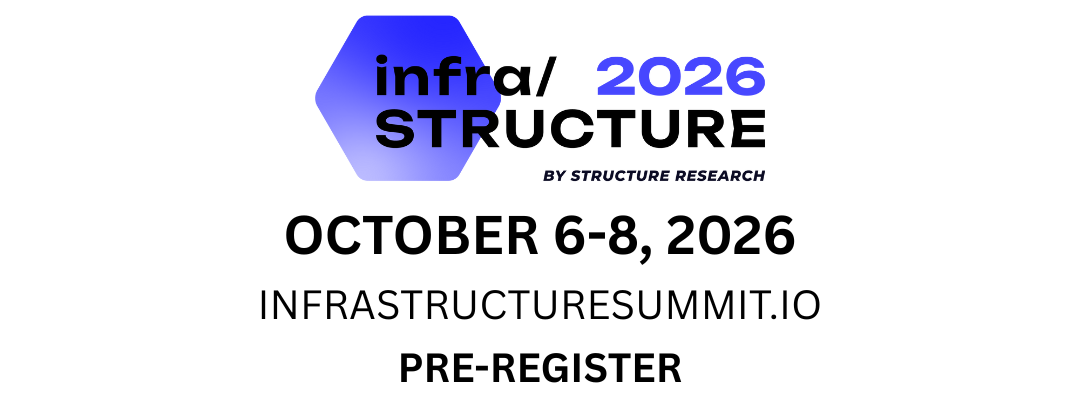WSS: Hyperscale earnings show signs of cloud growth acceleration and healthy demand even as pullbacks still happen
The past week was another busy one as earnings season kicked off and we got our first look at the recent performance of the hyperscale segment. Oracle reported a month back as they are on a different FY cycle, but Google was the first if the hyperscalers to report its CY2Q25 results. Both Oracle and Google showed revenue growth acceleration and disclosed significant backlog numbers that speak to the ongoing imbalance between supply and demand. Both Oracle and Google are seeing robust levels of demand, backed by strong interest in AI infrastructure, tools and services. Oracle seems to be getting a bit more of a push from large clients like OpenAI, but the enterprise segment and new AI platforms are significant drivers of growth for both cloud platforms. And it is clear not all of this demand has made it out of the pipeline. The backlog numbers disclosed from both are huge and show how the hyperscalers are still struggling with being able to bring online enough capacity to serve the demand they are seeing.
The health of the demand profile and the imbalance between supply and demand would seem to run counter to those that fear an overbuild or even bubble situation is forming. Things that happened in the marketplace in recent months have compounded these concerns. We have discussed at length how DeepSeek and various hyperscale pullbacks have been cited as evidence of unhealthy trend lines for the sector. And the past week there were reports that Google walked away from a self-build in Berlin, Germany, while industry chatter points to Google possibly engaging in another pullback phase from infrastructure resource commitments. But a dig deeper into what happened in Berlin shows that it is not a lack of demand or the excess of supply that is the determining factor for these kind of moves. In fact, it was reported that the main stumbling block on the land plot in question (and was de-committed from) was the fact it was not suitable for AI-oriented infrastructure requirements. There continue to be signs that the recalibration, adjustments and changes in direction that are par for the course when it comes to the development of infrastructure, are the primary drivers of decisions like this to walk away from a resource commitment. The overall health of demand is not the main factor in question.
The anticipation of strong demand over the long-term is behind large-scale builds such as the Stargate project and various hyperscale land acquisitions and builds in places like Ohio, Indiana and Pennsylvania. Pennsylania is emerging as a future hub as a confluence of factors have drawn in various names in the space including the likes of CoreWeave, Google, Blackstone, QTS, PowerHouse Data Centers, Brookfield, Microsoft, AWS and others. The availability of affordable energy and alternative sources like nuclear, drew AWS to Pennsylvania last year and there has been steady momentum following closely behind. There was recently a high-profile summit held in Pittsburgh that brought together these and other companies as they work to kick off a wave of infrastructure development.
It was also a busy week on the strategic side of the game. Investors continue to have a strong appetite for data centre operating platforms, with 5C Group just raising $850m from Brookfield and Deutsche Bank and InfraVia selling Swiss data centre firm Green Group AG to another investor. Operating platforms also continue to raise capital for expansion, signalling demand and growth requirements. In the past week, TierPoint closed a $250m term loan and Scala Data Centers closed on over $300m for a development project in Chile. The sector is also starting to see a wave of investments in AI-related technology, particularly around energy. EmeraldAI is building a software platform to manage energy usage and consumption between the grid and data centre, and raised $24.5m in an initial seed round.
Finally, there was a significant volume of activity across Germany and the Netherlands. We noted how Google walked away from some land in Berlin, but there was plenty of development activity in Frankfurt. NTT GDC and maincubes are building new facilities and Yondr completed its first data centre in the market, while elsewhere in Germany, AtlasEdge opened a new data centre in Stuttgart. Meanwhile, QTS is actively building in the Netherlands and Evo Switch is planning a new data centre in the Amsterdam area. In another sign that things are progressing well in these markets, Oracle Cloud committed $3b to both Germany and the Netherlands for expansion capacity and other AI-oriented initiatives.
or



